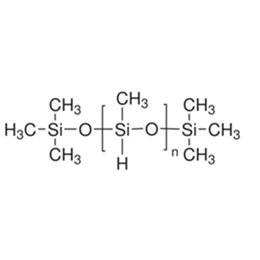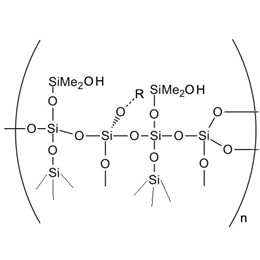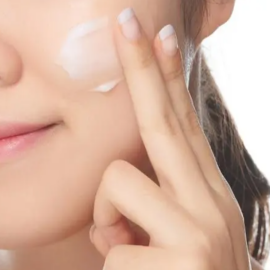Film formers are used in a wide range of areas, including personal and industrial products, and play a huge role in coatings to improve their performance. Why add silicone film-forming agents to coatings?
A film-forming agent is an essential additive in waterproof coatings, significantly improving the waterproof performance and durability of coatings. Silicone film-forming agents are one of the silicone production materials commonly used in industrial production or daily life products. It contains the high-quality properties of silicone, has good anti-electricity and waterproofing, high and low-temperature resistance, etc., and can be added to be used as a release agent or waterproof coatings.
The following five aspects of the silicone film-forming agent in the application of coatings:
- What is the film-forming agent?
- What is the function principle of film-forming agents?
- How to choose film-forming additives?
- How to apply silicone film-forming agents?
- How to control the amount of silicone film-forming agents?
- How do film-forming agents affect the performance of coatings?
- How do the film-forming agents perform better?
1. What is the film-forming agent?
Film-forming agents are a kind of additives, that can promote the coating film, and improve the mechanical properties, chemical properties, and durability of the coating film. In waterproof coatings, the role of film-forming additives includes increasing the coating film's permeability, reducing the coating film's permeability coefficient, and improving the elasticity and hardness of the coating film. Common types of film-forming additives include acrylates, amino resins, polysiloxanes, nanomaterials, and so on.

2. What is the function principle of film-forming agents?
Film-forming agents mainly play a role through the following aspects:
(1) The fluidity of coatings:
Film-forming agents can reduce the surface tension of coatings and improve their fluidity in the film-formation process. It makes the coating easy to apply and forms a smooth and even coating film when brushing or spraying.
(2) The adhesion of the coating film:
Film-forming agents can enhance the adhesion of the coating, making it more solid and durable. Especially for metal, plastic, glass, and other materials with complex properties, film-forming agents play a more significant role.
(3) The water resistance, weather resistance, and chemical resistance:
Film-forming additives can make the coating more durable, and not easy to peel off, fade, or be eroded by chemicals. Thus it prolongs the service life of the coating.
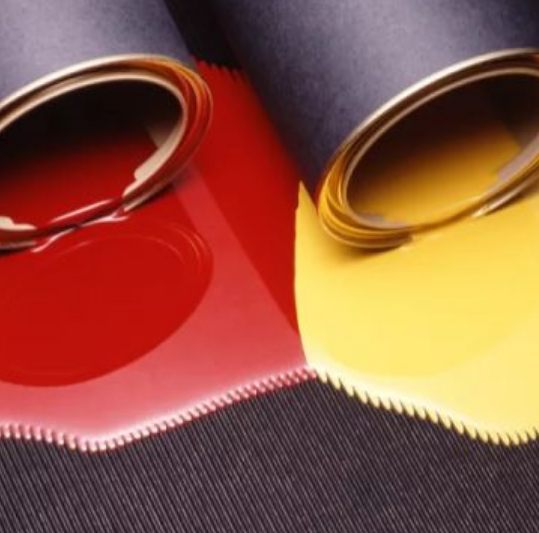
3. How to choose film-forming agents?
(1) According to the type of coating and performance requirements
Such as environmentally friendly coatings, lead-free, chromium-free, non-volatile organic compounds, and other components.
(2) According to the compatibility with other components
Experimental evaluation should be carried out to avoid interactions that lead to a decline in coating performance
Determine the dosage of film-forming agents based on elements such as coating thickness and drying time. This requires some small-scale experiments to ensure the performance and quality of the coating.
Film-forming agent is an important coating additive, it can improve the quality of the formation of the coating film surface and service life. Choosing the appropriate film-forming additives, and using them reasonably will help the coating manufacturers to produce more high-quality, efficient coating products.
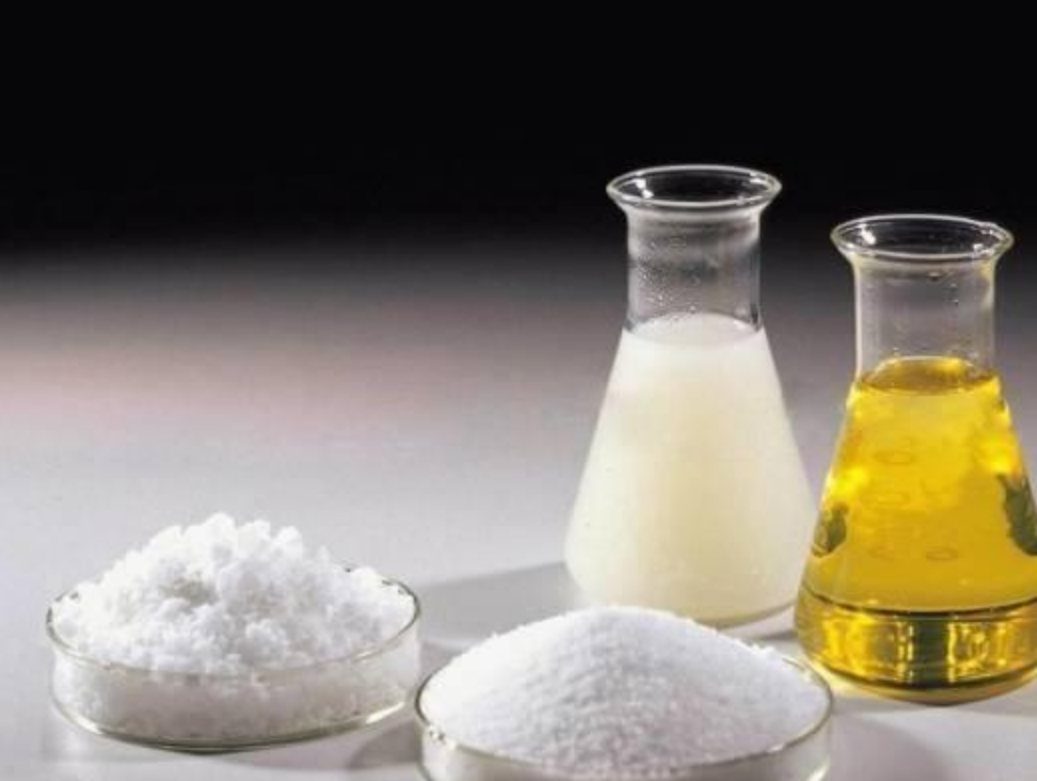
4. How to apply silicone film-forming agents?
(1) Liquid coating with silicone film-forming can form a solid film after drying, such as making high-temperature-resistant surface coatings for insulating, bonding, and sealing H-class motors.
(2) It can form dry film and be used to coat and protect the surface of important items exposed outdoors (such as cultural relics, billboards, etc.), which can be anticorrosive, weather-resistant, and prevent fading.
(3) It can be the ideal material for making various waterproof coatings and the daily chemical industry.
XJY-701 Polymethylhydrosiloxane
It is a colorless free-flowing liquid, which can be used as a waterproofing agent for fabrics, glass, ceramics, paper, leather, metal, cement, marble, and other materials, especially fabrics. Under the reaction of the metal catalyst, Polymethylhydrosiloxane can be crosslinked at low temperatures to form a waterproof membrane on the surface of various materials.

(4) It improves and regulates the peeling force of pressure-sensitive adhesive, so it can be used as a peeling force regulator for making pressure-sensitive adhesive tapes.
XJY-8205 Methyl Silicone Resin
Silicone MQ resin mainly tackifies and reinforces the resin. Silicone hydroxyl or vinyl in the MQ resin under the action of the catalyst, can be through the hydrogen-containing silicone and silicone rubber hydroxyl or silicone rubber condensation, so as to prepare silicone pressure-sensitive adhesive. This high molecular weight can be used with organic solvent.

Due to the solvent-based solution containing a large number of volatile organic compounds, solvent volatilization in the curing process is prone to serious environmental pollution. Nowadays, environmental protection is getting more and more attention. The silicone pressure-sensitive adhesive industry is for environmental protection, low-cost products for the development of the mainstream, biodegradation, radiation curing, and other new products for the research direction.
(5) It can form a thin film to be used to make mold-release agents for a variety of materials (such as metal surface) in various industrial processes.
(6) It is suitable for use as a tackifier in the bonding of inorganic materials and organic materials.
(7) In silicone rubber as a reinforcing agent, it can make LSR high with mechanical strength.
5. How to control the amount of silicone film-forming agents?
The amount of film-forming agents in waterproof coatings is affected by a variety of factors. Among them, the most important factors are the type of coating, use, and performance requirements. Different types, uses and performance requirements of waterproof coatings have different needs for film-forming agents, so their dosage control in film formation is also different. In addition, the type of film-forming additives, the order of addition, the proportion of the formula, construction conditions, and other factors will also affect its dosage. In order to control the dosage of film-forming additives, it is necessary to carry out scientific formulation design and fine construction control according to the actual situation.
According to the actual situation and the nature of the coating, it is generally recommended to control the dosage of film-forming additives between 5% and 15%. At the same time, the following points need to be noted:
(1) When designing the formula, you need to consider the type and nature of the film-forming agents and choose the film-forming agents that are suitable for your products as much as possible to ensure that the waterproof performance of the products is improved.
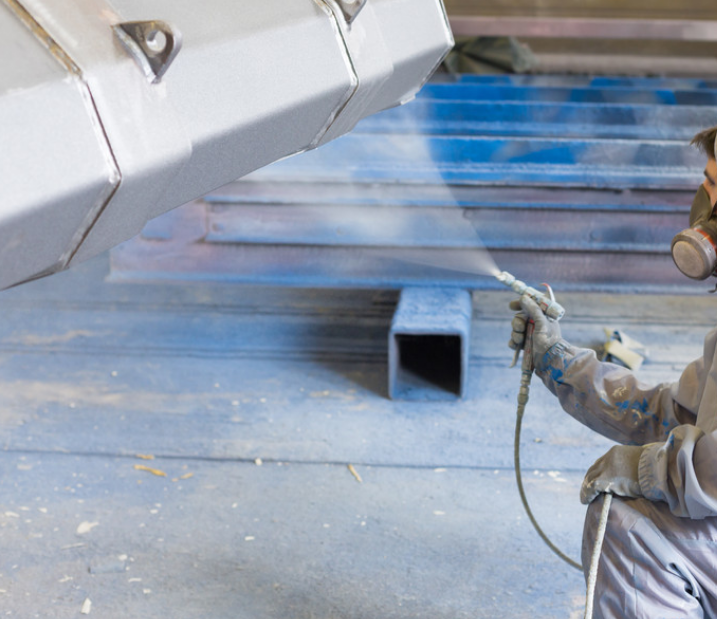
(2) We should be strict in accordance with the proportion of the formula to join the film-forming agents and adjust according to the actual situation, to ensure that in order to achieve the expected waterproof performance while reducing the amount of film-forming additives.
(3) In the construction, pay attention to controlling the construction process and conditions, such as paint uniformity, drying time, coating thickness, etc., in order to reduce the waste of paint and excessive use of film-forming additives, to achieve as much as possible to save the purpose of film-forming additives.
6. How do film-forming agents affect the performance of coatings?
The effect of film-forming agents on the lowest film-forming temperature (MFFT) of emulsion. Theoretically analyzed, the film-forming temperature of emulsion paint is the temperature at which the emulsion forms a non-cracking, continuous film. The role of film-forming agents is similar to that of plasticizers, and the addition of film-forming agents can reduce the MFFT of emulsions, and the magnitude of the reduction increases with the increase in the dosage of film-forming agents. However, the amount of film-forming agents to a certain extent after the MFFT almost no longer reduces the magnitude of the decline in the MFFT is also related to the type of film-forming additives and emulsion type, a significant reduction in the MFFT of an emulsion film-forming additives may be a small role in another emulsion, or even completely ineffective. It is summarized as follows:
(1) The magnitude of MFFT reduction increases with the increase in the amount of film-forming additives, but after the MFFT is reduced to a certain level, the effectiveness of adding more film-forming additives is no longer improved. Therefore, the formulation should be selected for the appropriate effect of the film-forming additives and the use of a small additive amount;

(2) Due to the special characteristics of the water-based system, often the film temperature can only be reduced to 0 ℃ or so, and then the amount of film-forming additives film temperature is no longer a significant drop;
(3) On the same kind of base material, different film-forming agents reduce the effect of MFFT varies greatly, some very obvious, some almost can not reduce the film temperature; different types of base materials, the same kind of film-forming additives effect is not the same at all, in a kind of emulsion system, add a small amount of film-forming additives on the significant effect in another kind of emulsion system may not be obvious, or even completely ineffective.
(4) Film-forming agents reduce the efficiency of MFFT and its type has a great relationship, obtaining the same amount of film-forming agents with film-forming temperature and coating effect is an important part of the formulation screening. In addition to reducing the film temperature and improving the film density, film-forming agents can also improve the construction performance, increase the leveling of paint, extend the open time, and improve the storage stability of paint, especially low-temperature frost resistance.
7. How do film-forming agents perform better?
Film forms are some additives that can improve the film-forming properties, mainly including Polyurethane, Acrylics, Phenolic resins, Siloxanes, Polyvinyl Alcohol, Waxes, and other chemical compositions. It can also be used in the personal care field (forming a skin barrier to protect skin). How to improve the competitiveness of your products?
XJY Silicones is one of the leading silicone MQ resin and VMQ silicone manufacturers in China, with more than 30 years of R&D and manufacturing experience in the silicone industry as well as more than 15 related patents and technical support. Our silicone raw material products can meet the needs of the coating field and support the provision of diversified customized solutions.

